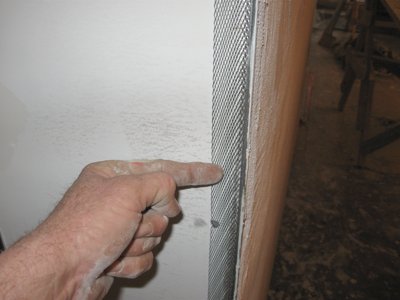
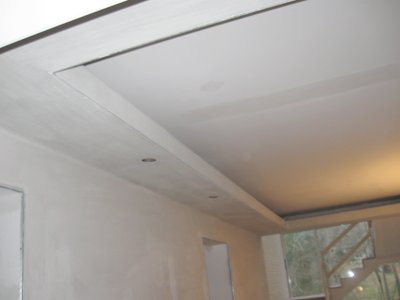
rough for a good bond with the finish.
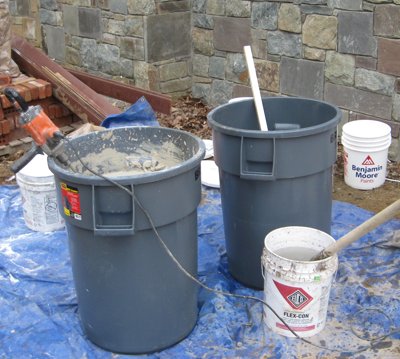
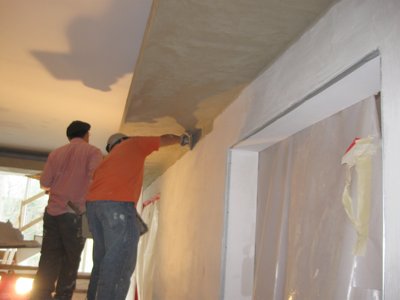
with water. Some of the liquid mix is poured in the other can and mixed with plaster.
cement. It is used here because it sets slow, allowing
large areas to be done at the same time. It can even
be troweled the next day for some cool burnishing
effects. Keene's cement has a side benefit of developing
incredible hardness.
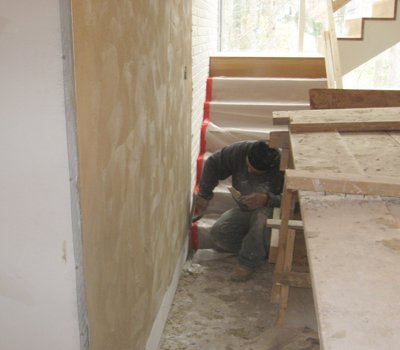
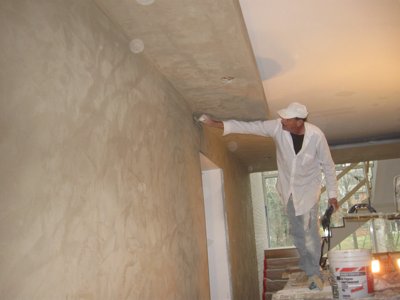
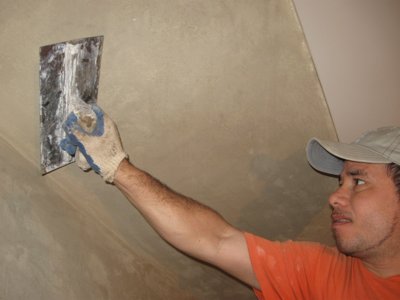
green a material as you can get. Plaster and sand are made from rock, a resource the earth will never run out of. Plaster is completely none toxic.